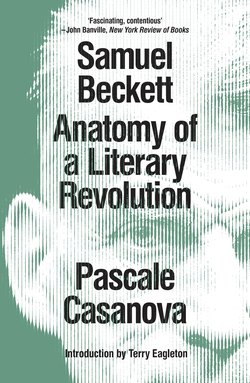Samuel Beckett

Реклама. ООО «ЛитРес», ИНН: 7719571260.
Оглавление
Pascale Casanova. Samuel Beckett
Samuel Beckett
Отрывок из книги
Anatomy of a Literary Revolution
Pascale Casanova
.....
Nor is it a question of a simple coupling of Joyce and Beckett. In an illuminating discussion, Casanova shows how the two men went their different literary ways in the pursuit of similar anti-representational ends. If Beckett aimed to have no style, Joyce sought to imitate every style he could lay his hands on. If Beckett wanted to purge words of their meanings, Joyce dreamt of laying meaning on so thick that the English language would crumble to pieces in his grasp. Beckett, always an ascetic, chooses the via negativa of non-meaning, while his compatriot pursued the carnivalesque path of polyphony. Beckett’s frugal language is among other things a reaction to the baroque hyperbole of Irish nationalist rhetoric. The celebrated avant-garde materiality of the word struck the younger Irish author as, in his own term, ‘terrible’. In his search for a ‘literature of the unword’, language was to be eliminated, not foregrounded.
Since eliminating meaning is an impossible literary project even for a Mallarmé, writing itself becomes for Beckett the very signifier of the failure which so gripped his imagination. In a superb passage in the book, Casanova shows us how it was just this insight into the ineluctability of literary failure which enabled Beckett to find his feet as an author. He would not go the way of Yeats and Dublin, or of Shaw and London; but for a while he could not go the way of the avant-garde either, since an enormous obstacle named Joyce loomed up to block that path. In Bloomian terms, Joyce was the strong precursor to Beckett’s belated ephebe – or, as they say in Ireland today, Ulysses is the nightmare from which Dublin is trying to awaken. Beckett will finally find a way around this daunting presence by placing the very impediment to writing at the centre of his writing, transforming the question of failure into the very form of his art, telling incessantly of the failure to tell. He will accept that though he won’t write, can’t write, has nothing to say and nothing with which to say it, he must write. The act of literature thus becomes a kind of empty Kantian imperative, a law without logic, an obligation without content. Like desire, it is nothing personal.
.....